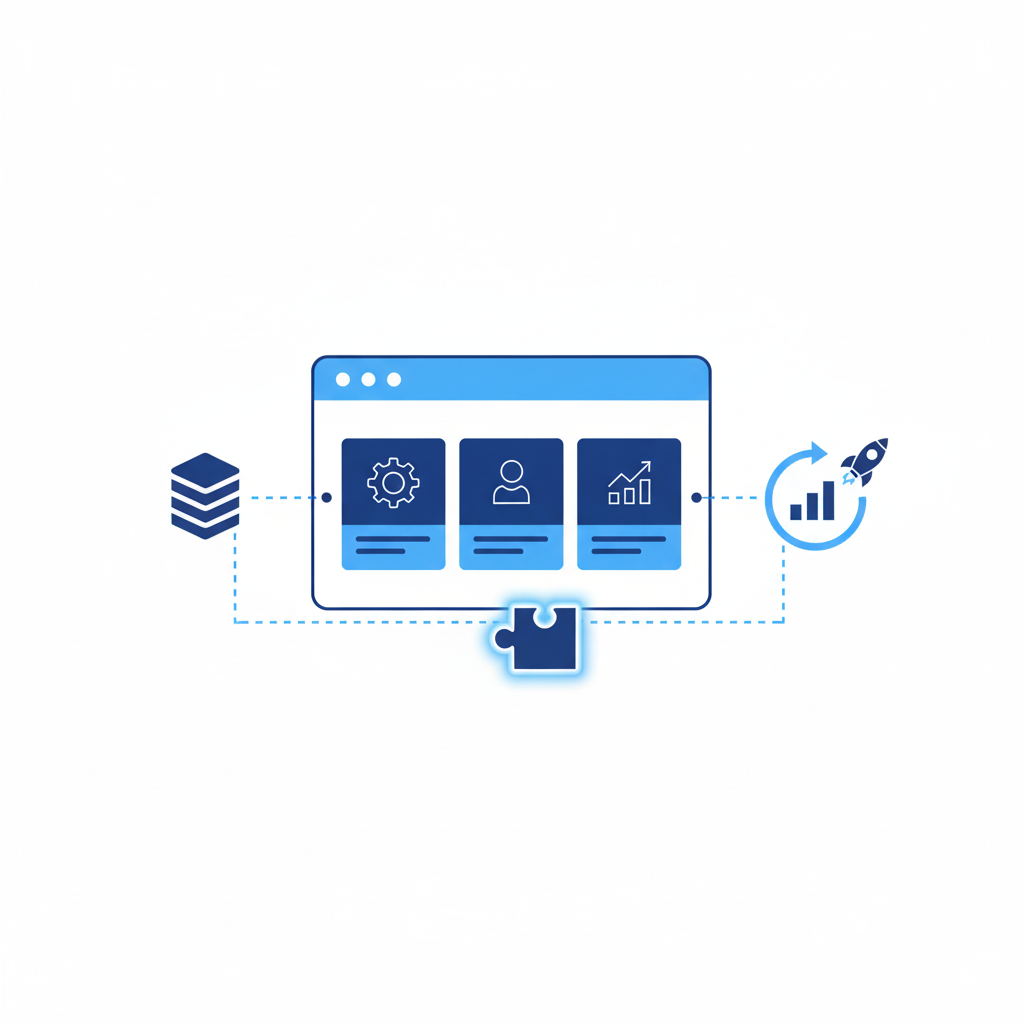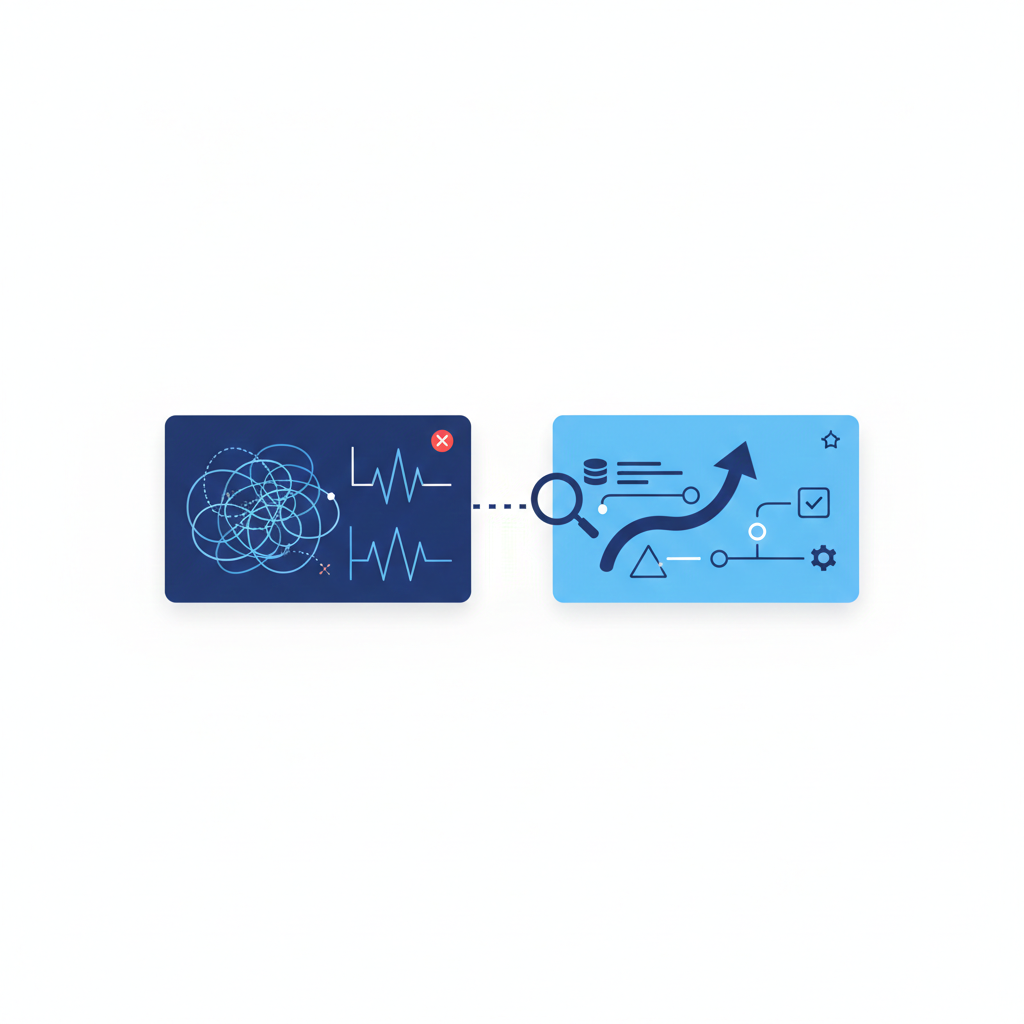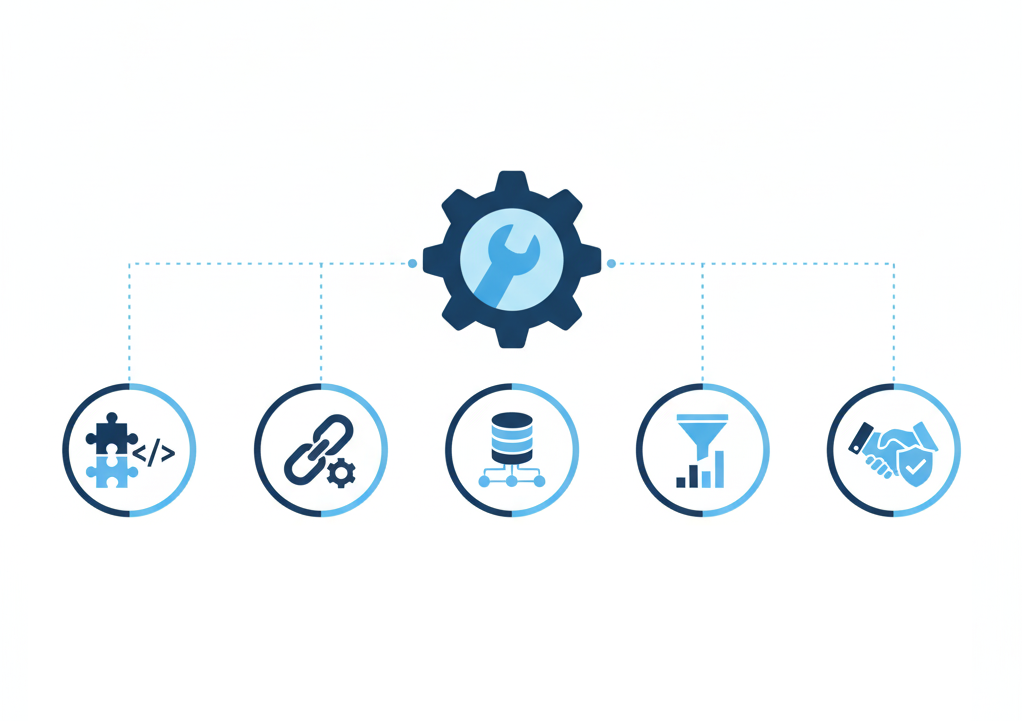Get in touch

Your HubSpot website is a cornerstone of your digital presence. While standard templates can get your site up and running quickly, they often fall short in flexibility, functionality, and scalability. That’s where custom HubSpot modules come in — providing both marketers and developers with the tools to create truly high-performing websites.
At Octo, with 17+ years in web development and 8 years of HubSpot expertise, we’ve helped companies and agencies unlock the full potential of HubSpot CMS through tailored, high-impact modules. In this article, we’ll explain what HubSpot custom modules are, why they matter, and how teams of all backgrounds can leverage them to improve website performance.
Custom HubSpot modules are reusable building blocks created in HubSpot Design Manager and can be added to templates or drag-and-drop areas. They enable both marketers and developers to extend functionality without rewriting code for each page.
Add advanced functionality like sliders, calculators, or embedded HubSpot forms and other interactive elements.
Maintain brand consistency across your website.
Give both technical and marketing teams greater control over content and design.
Support personalized content via HubSpot tokens, smart content rules, or dynamic content with HubDB.
In essence, custom modules make your website scalable, efficient, and adaptable to evolving business needs.
Default HubSpot templates are convenient, but they often create challenges:
Limited design and layout flexibility.
Inefficient workflows: developers are needed for every minor change.
Difficulty maintaining brand and design consistency across multiple pages.
Custom modules solve these problems by allowing:
Drag-and-drop insertion of advanced features directly into page layouts.
Faster creation of landing pages that convert, without waiting for developer support.
Consistent branding and functionality across campaigns.
Whether you’re a marketer, product manager, or web developer, custom modules empower your team to focus on strategy and results rather than repetitive technical tasks.
Modules can include interactive elements, advanced CTAs, and even support personalized content through HubSpot tokens, smart content, or HubDB. These capabilities help your pages generate more leads and drive engagement.
Modules can be reused across multiple pages. Global modules automatically propagate updates across all pages, while page-specific modules allow customization where needed. This reduces repetitive development work and accelerates time-to-market.
As your business grows, custom modules ensure your website can evolve without compromising design or functionality.
Stand out from competitors with unique design and interactive features that templates alone cannot provide.
At Octo, we’ve seen firsthand how strategic module design can transform websites into high-converting, brand-consistent platforms.
Even with powerful modules, mistakes can undermine results:
Overcomplicating design: More features don’t always equal better performance. Focus on clarity and conversion.
Skipping mobile optimization: HubSpot CMS is responsive by default, but poorly implemented CSS or JS inside custom modules can break layouts on mobile. Always test modules across devices.
Neglecting performance: Heavy modules can slow down page load times.
Key takeaway: modules should be purposeful and strategic, not just visually impressive.
For teams of all skill levels, the process is straightforward:
Identify gaps in your current website — e.g., limited landing page functionality or personalization.
Define requirements for design and functionality.
Collaborate with HubSpot developers or a trusted agency (like Octo) to build modules using HubL or HubDB. HubDB powers dynamic content, HubL enables template logic.
Test and optimize to ensure modules improve user experience and conversions.
With the right expertise, even complex modules can be managed efficiently by marketing teams, freeing developers for more advanced work.
Building effective custom modules requires technical know-how. Partnering with a HubSpot development agency ensures:
Modules are tailored to your goals and fully optimized for performance.
Best practices are applied for scalability, mobile, and security.
Continuous support is available for updates, migrations, or campaign-specific needs.
At Octo, our experience allows us to bridge the gap between marketing strategy and technical implementation, helping businesses unlock the full power of HubSpot CMS.
Custom HubSpot modules are more than just a technical feature — they are a growth engine. Especially within CMS Hub Professional and Enterprise, modules unlock advanced capabilities like dynamic content, memberships, and serverless functions, enabling unparalleled scalability.
Whether you’re a marketer, product owner, or web developer, custom modules can help your team:
Launch pages faster
Improve conversions
Maintain brand consistency
Scale your website as your business grows
Request Custom Module Development from Octo and let our team of HubSpot experts build a high-performing, scalable website tailored to your business needs.

Software companies rely on data more than almost any other industry.

Most companies invest in HubSpot CRM expecting clarity, automation, and scalable growth. In practice, we...

Marketing agencies today are expected to deliver fast, high-quality digital experiences — websites, land...